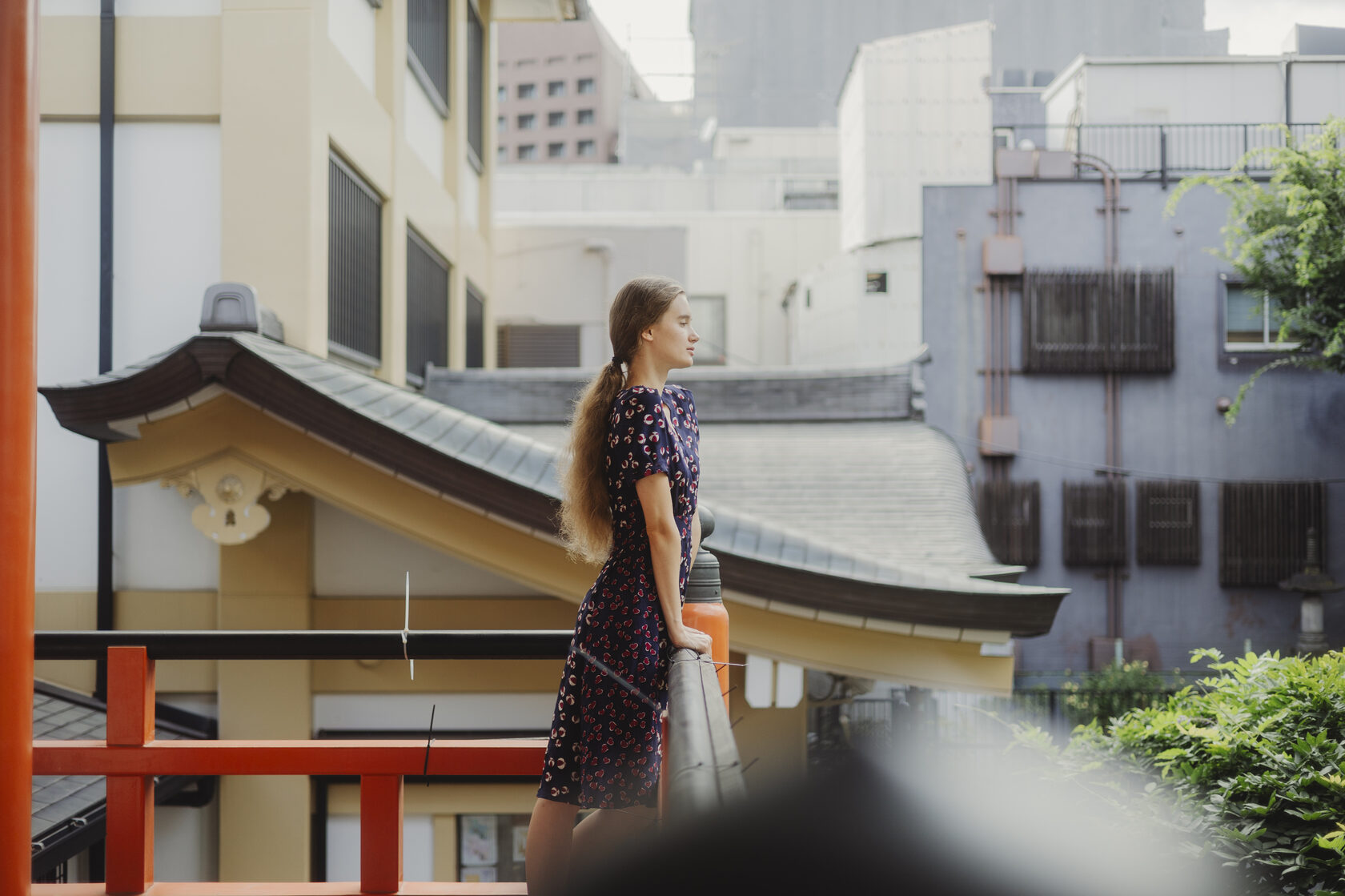Most of my early childhood memories are connected to the Asian part of the Eurasian continent. It is hard to explain the void that certain things left in me when I had to move to another part of the world as a kid. Even the fact that now I struggle to tell what I learned to use first- chopsticks or a fork breaks me in two halves. The first half strongly advocates that my European education and fluency in languages native to countries in Europe, emphasises that I should identify as such. However, here I encounter certain difficulties, making it not so simple.
An evocative smell of flowers and spices that met me at the airport became my first strongest memory of Asia since I arrived in Thailand for the first time long back in 2007. The humid hot weather, landscapes lush and tropical, nostalgia triggering sounds and textures. Since then, I spent my summers and winters in a variety of countries in Asia; South Korea, Singapore, Thailand, India and China, discovering the European continent a lot later in life. This left a significant imprint on what I call home today. The transition I’ve gone through back then has really been about me adjusting to a way of living and thinking that aligns more with my spirit. The only thing that I was missing was to speak an Asian language.
I cannot tell precisely why my choice fell upon the Japanese language, considering that I haven't been to Japan before. Maybe due to the allure of its fascinating and multifaceted culture; on the one hand steeped in the deepest of traditions dating back thousands of years; on the other a society in a continual state of rapid flux, with continually shifting fads and fashions and technological development. Or perhaps, because I saw a cute waiter in my favourite sushi place in NYC, longing to address him in his own language. Even by digging deeper into this issue, I cannot pick a rational reason, only being able to justify it by the need of heart. But surely I didn't know that my strong desire to eventually master this language could have such a positive effect on my life.
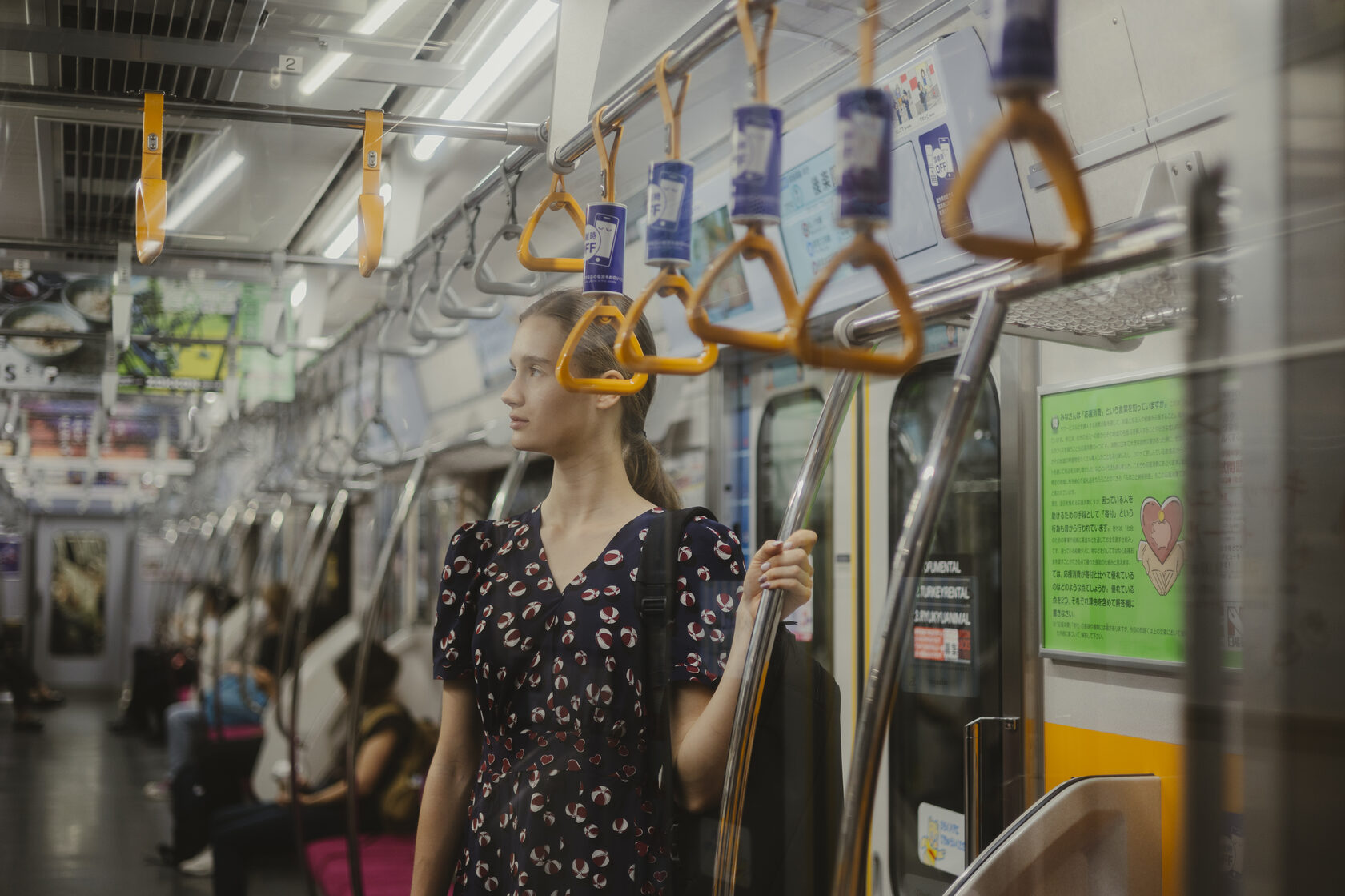
I arrived in Tokyo at 12 am on the 3rd of July, 2023. One step out of the aeroplane convinced me that my emotions haven’t deceived me; all of the formative memories came back as an unusual sense of belonging. I finally felt that same smell again, as if my ship finally moored at a native port after a life-long trip.
Being jet lagged and fatigued from the lingering 15 hour flight, I felt like my eventual arrival “home” was just another sentimental dream. Wishing to fully immerse myself in Japanese culture, I stayed with a host family that happened to live 1.5 hours away from Tokyo. The house where I would stay for the next four weeks was clean, cosy and caused a recondite feeling of deja vu. It reminded me of my dear home in Phuket so much, that if I closed my eyes I could see the same patterns of linen in my bedroom, and feel the very same smell of bonfire coming from the wooden stairs and floor.
My host family was understanding of how tired and confused I was, therefore, they let me be for the rest of the day. The lady that took me in was not only able to speak to me in her native Japanese but also knew both Russian and English, which made the acquaintance and bonding significantly easier later on. As we ate dinner that night, we laughed at how many coincidental similarities there are between us and how unexpected life is.
My host family was understanding of how tired and confused I was, therefore, they let me be for the rest of the day. The lady that took me in was not only able to speak to me in her native Japanese but also knew both Russian and English, which made the acquaintance and bonding significantly easier later on. As we ate dinner that night, we laughed at how many coincidental similarities there are between us and how unexpected life is.
A little bit about the Japanese language
My journey of learning the Japanese language is what can be called “Per aspera ad astra”. It is definitely the most complex language I have ever expressed the desire to learn. Writing, reading, grammar, all of the most critical aspects of this language were, and still are awfully difficult for me to comprehend, be it because of a standard language template that formed in my mind throughout the years of learning European languages exclusively or for any other reason.
Yet, learning the language in its native country has a powerful effect- it adapts your hearing to it, which helps you to understand and master colloquial speech.
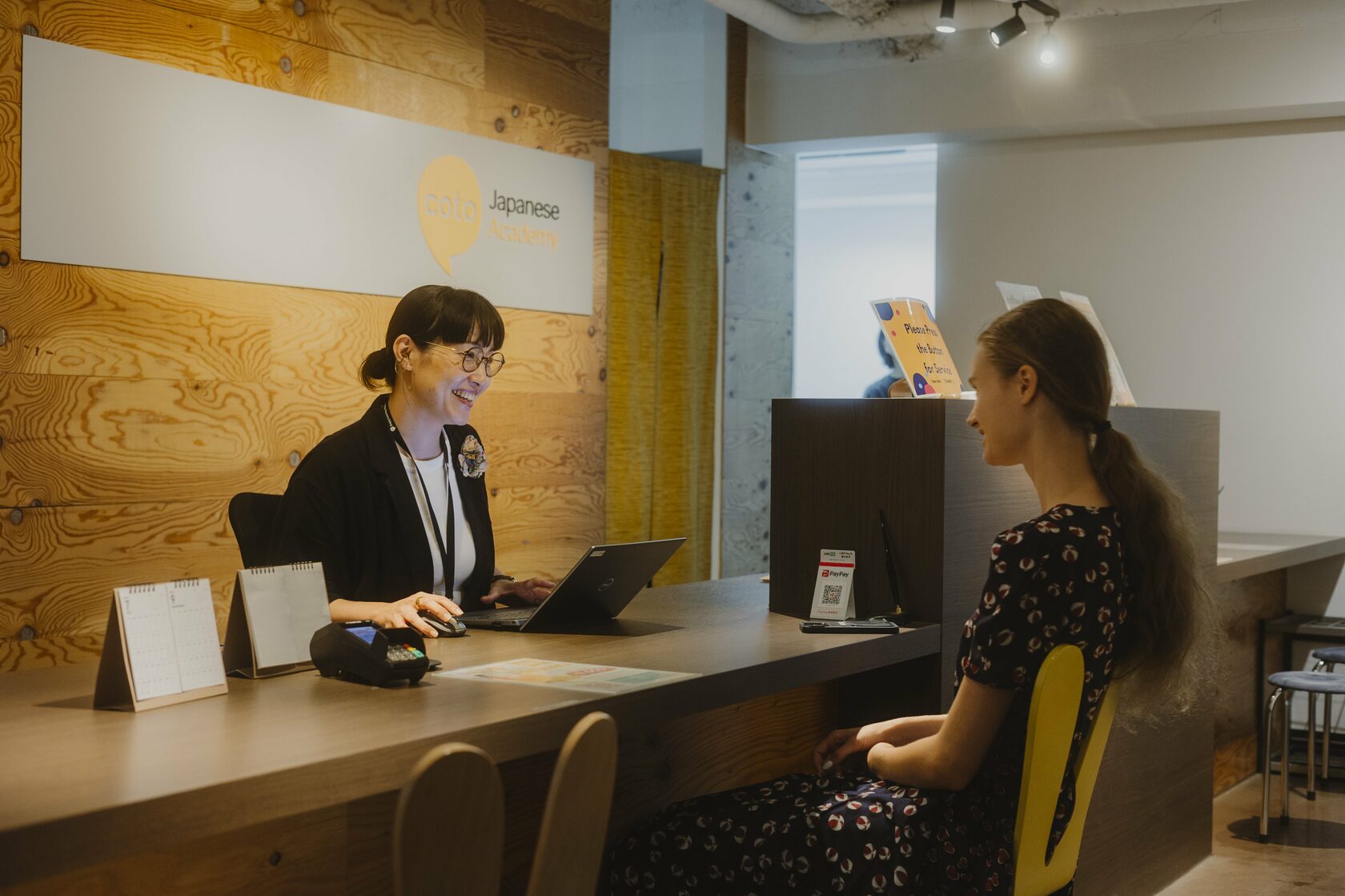
As a result, the complete language immersion plus daily three-and-a-half-hour classes not only allowed me to express myself better but also to feel the confidence in the knowledge I got before coming to Japan due to the extensive speaking and reading practices. Furthermore, essential daily communication with the locals made me believe I might become fluent one day and invoked so much motivation in me, that even learning my most disliked Kanji turned into leisure (read more about learning the Japanese language in my article).
A short introduction to the city of Tokyo
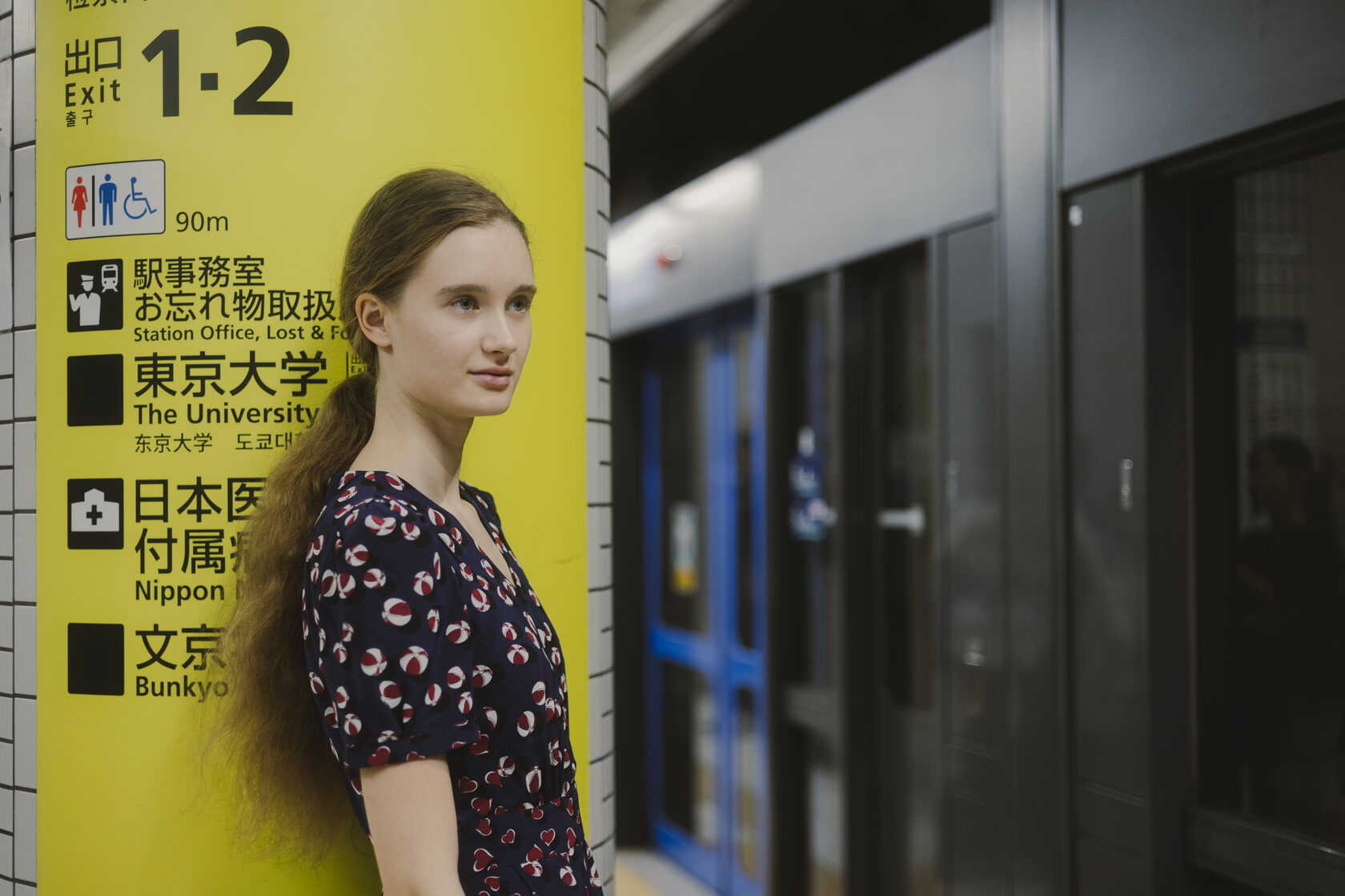
The versatile, complex nature of this city exceeded all of my expectations, and could not be wholly explored and understood in a month or even two. Every area of Tokyo feels like a different city and manages to preserve its own distinctive atmosphere: loud Shinjuku, historical Asakusa, cosy Roppongi. I don't think there is someone who wouldn't be attracted to at least one of the areas in Tokyo. There would be something for everyone. My personal advice- it is always better to have a local person to show you the hidden places like sushi bars and rooftops. Otherwise, you would have to bear the burden of following the tourist guidebooks. What's more, there is no better way to perceive Tokyo than on a motorbike. The smells, the sense of wind, the sounds of people and cars around you…
Shibuya
This was the first area of Tokyo I went to see. The famous Shibuya crossing was my perception of the whole Tokyo before I came to Japan. I thought this city would be as crowded and loud as Hong Kong or Shanghai. To my surprise, despite the blinding lights and endless attractive billboards, the noise pollution was compensated by plenty of restful parks, creating a perfect balance in Shibuya. When you find yourself tired from the sun and the intense energy of the streets, find a cafe specialising in wagashi (Japanese sweets) and see how your perception of Shibuya's energy changes.
Shinjuku and Akihabara
There is a reason why I united those two areas in one paragraph- I didn't particularly enjoy them. Both Shinjuku and Akihabara are a must in all Tokyo guidebooks, and I agree entirely. To see how versatile Tokyo can be, visiting these areas will help you understand its metropolis side. The streets of Shinjuku and Akihabara are noisy, packed with people and visual pollution. Shinjuku is a nightlife district and a gigantic commercial zone. In addition to major department stores like Isetan, Odakyu, and Keio, rows of electronics retailers line the streets, it is known for its high-rise buildings and a large number of bars and restaurants. It was busy, crowded and seemed a little too crazy for me. Akihabara is mainly known for its shopping and is quite similar to Shinjuku. Denki-gai, meaning the Electric Town, which is the second name of Akihabara, perfectly describes it. By walking down the streets of Akihabara, you’ll soon discover why it is a spiritual home to anime & game lovers, and fans of pop idols. It is now an unusual fusion of electronics stores, thriving anime culture and maid cafes.
P.S. When the weather is hot, it becomes challenging to explore these areas because, unlike in Shibuya, being typical stone jungles, thriving parks and other potential resting places are absent, which makes it an overstimulating, tiring experience.
Asakusa
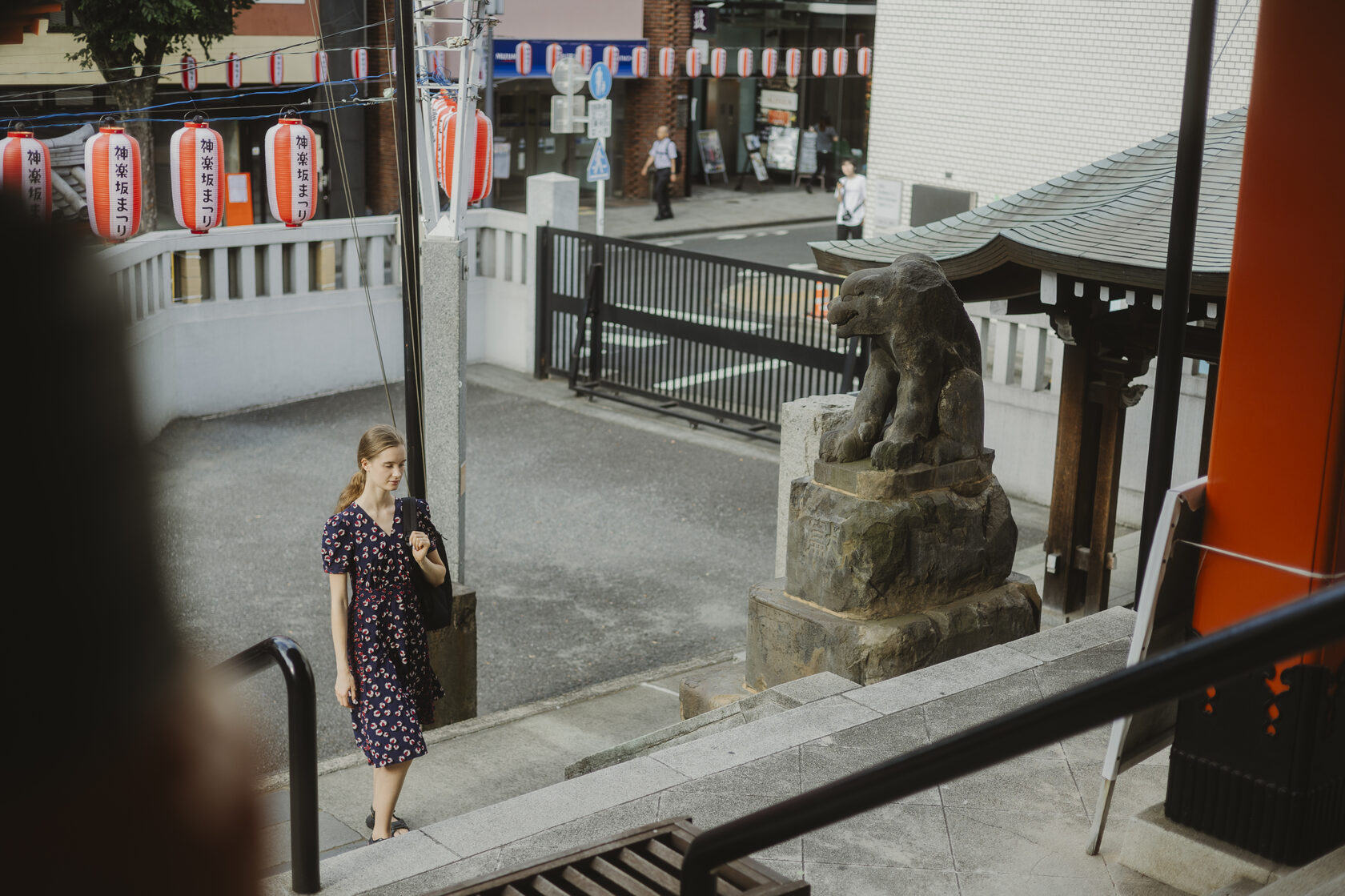
It is a historical neighbourhood with the vibe of quintessential Japan; the shrines, the temples, the tiny traditional shops, all of this is Asakusa. In my opinion, it is the heart of the city, as it stores the country's history. Asakusa has a personality which is contained in every little stone or piece of wood. The unlimited variety of colours and smells to sense in Asakusa makes you want to return a few more times just to get to know this place a little better. And every time you come back, you will find this place remaining permanently beautiful.
Roppongi
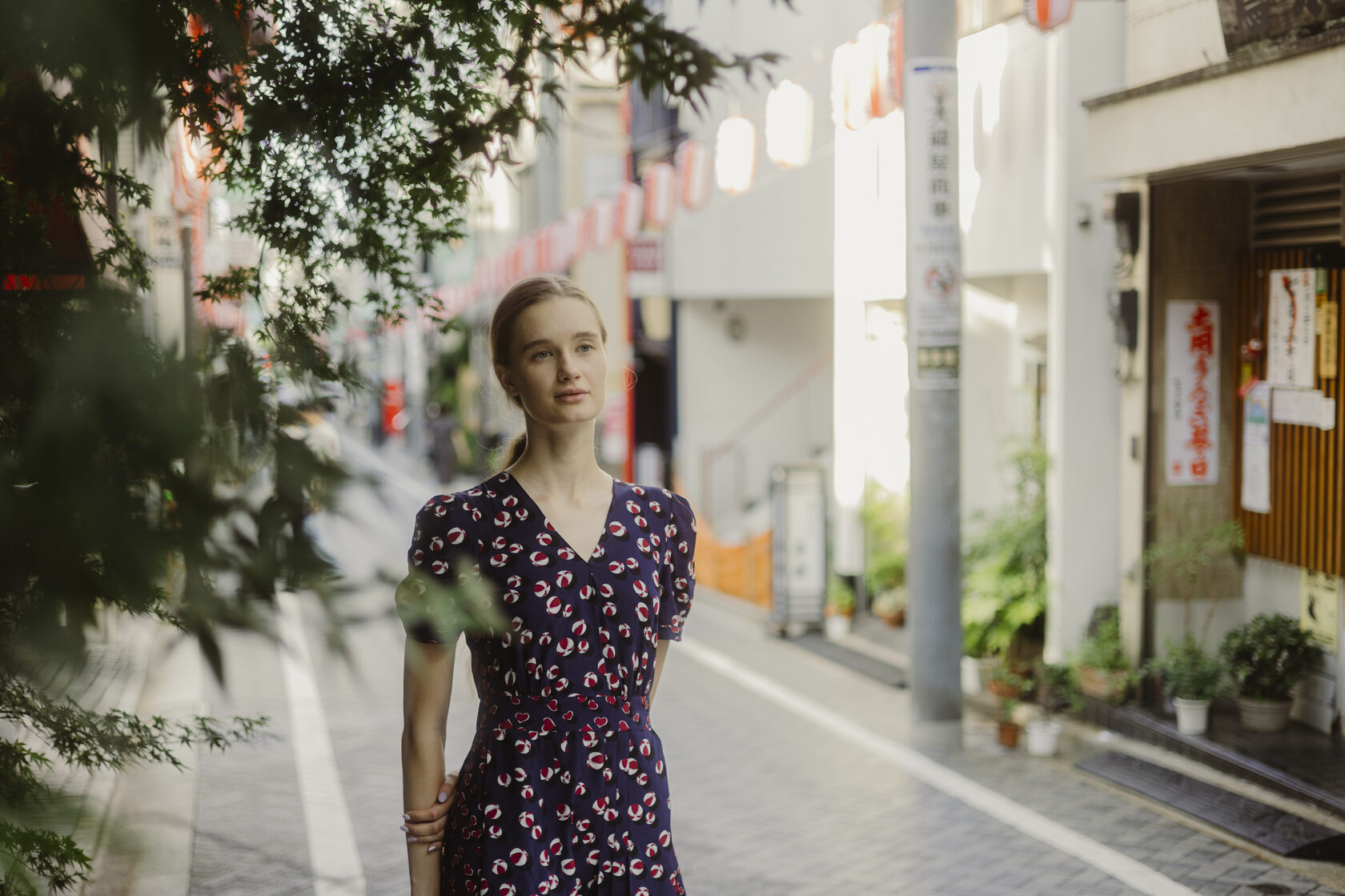
If someone would ask me what my favourite area in Tokyo is, without a doubt, I would say it's Roppogi. It is a cosmopolitan, enchanting area full of art museums, stunning rooftops, dazzling night views and great restaurants. Once known as the centre of Tokyo's nightlife, Roppongi has transformed over the last few years into a centre of culture, world class art and incredible food. There I tried the best sushi and found the best shopping. Its other benefit is Roppongi being a residential area with an ideal location in terms of proximity to other important sites in Tokyo. When I was getting tired and needed some time for myself- Roppongi was where I went.
Harajuku
Getting to know this area in a day or two is impossible. Harajuku is so versatile and all-inclusive that it is a topic for a separate article. Often associated with Japanese subcultures and known for being the area of defiantly bold styles and self-expression, it creates a perfect bouquet of popular trends, celebration of art and youth. When going there, be prepared to spend money, as you will be overwhelmed by unusual foods, crazy shops and character cafes.



